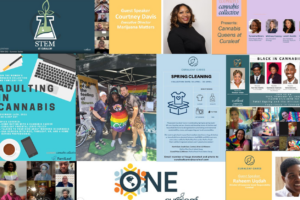How purpose communications can nurture employee loyalty
Employees are the lifeblood of any organization, and it’s important to nurture their loyalty in order to create safe environments that keep them happy and productive.

Purpose communications can play a big role in this process by helping employees identify a sense of meaning and purpose in their work.
By communicating a sense of purpose to employees, employers can emphasize the importance of the work being done and why it matters to the business. Beyond giving employees something to take pride in, purpose can make them feel valued and motivated to work to the best of their abilities.
At Ragan’s 2022 Future of Communications Conference recently held in New York City, New York, Curtis Sparrer, principal at Bospar PR discussed the employee benefits of purpose communications with a panel with speakers that included Terez Hanhan, programs and research manager for Born This Way Foundation, Ben Cumming, communications director for Responsible Business Initiative for Justice and Danielle Brigida, senior director of wildlife communications and strategy at the World Wildlife Fund.
Sparrer led the panel in conversation around how incorporating employee listening and embedding purpose communications across business functions can positively impact employee retention and your bottom line through three areas: collaboration, measurement and feedback.
Strengthening collaboration with partnerships in proximity
There is a myriad of benefits to strengthening collaboration at an organization, and effective collaboration creates room for purpose to thrive by focusing on the team unit within an organization without neglecting the individuals that form it.
Hanhan explained that she is always working to strengthen collaboration at her organization.
“We partner with organizations of corporations, nonprofits, school districts, schools, classrooms, and individuals to make the world a kinder and braver place,” she explained. “And we do that through programming, resources and research that I oversee. We run a lot of research about the impact of kindness on mental health and actionable ways that people can employ kindness to improve mental health and advice on doing so.”
Cumming added that two things central to strengthening collaboration at RBIJ are proximity and partnership, explaining how partnering with an organization that is doing the work and aligns with your company values can be a purposeful win that fosters a sense of belonging among employees.
“In order to understand how you as a company, and these company leaders can make an impact for marginalized, underserved and overlooked people in society, one of your first ports of call should be the people on the ground doing the work interacting with those communities, ”Cumming said. “I would recommend reaching out to them and asking them how you can make an impact. Don’t go in alone, is basically what we always say when it comes to justice.”
He added that proximity is essential to a successful partnership.
“By working with these organizations, you can bring those stories into your organization, people from those communities, people who’ve experienced the justice system incarceration, but exonerated from death row, you can bring them into your organization to make the stories real for your employees and make them believe in it,” said Cumming.
Seek purposeful feedback by treating employees as ‘loving critics’
Feedback is a crucial component to success. Without it, communication is nothing more than information. Feedback is effective when you are listening actively, taking the time to analyze and thinking of the best possible solution to perform better. It also helps the sender ensure that the recipient has interpreted the message correctly.
Brigida emphasized the importance of purposeful listening as a prerequisite to actionable feedback.
“I’ve been training for my whole life to figure out how to just continue to become a better person,” Brigida said. “And I would say the other piece of that is surrounding yourself with loving critics who are going to care about you but will give you feedback that will help you be a competitor. And I think that that’s a huge part. Sometimes we’re cynics and we’re kind of conditioned to be that way. Avoid that. Find those people that want to see you succeed, and can give you that loving feedback.”
Hanhan added that the advisory board for the Born This Way Foundation is made of young people between the ages of 15 to 25who provide feedback to leadership on interests such as mental health.
“We take that feedback and help fill the gaps and either produce programs and resources that are needed partner with other people on programs and resources,” said Hanhan. “And they really are our guiding star.”
Measuring success through listening
When collecting feedback, the best way to measure success is by listening.
“We are constantly speaking with young people,” Hanhan explained. “For us, [it’s about] making sure we have a pulse on what young people need, and want to hear.”
Recognizing change is a key way that Cumming measures success through listening.
“Changing laws, passing policies is a big part of what we do,” he said, “[and] getting enormous employers to adopt and smaller employers to adopt fair hiring practices is huge. Explaining how this idea linked back to his previous point on the importance of partnerships and proximity,” Cumming said that strong relationships provide touchpoints for listening during times of change. “If you have those relationships with people in those communities at the frontline of those issues, they will be able to tell you whether or not you’re moving the needle,” he added.
By forging those relationships and getting proximate rapport, Cumming said communicators can start to build a barometer that measures whether or not your org is making a difference beyond legislation.
Brigida added that tracking behavioral change is another way to measure success around purpose comms.
“[It’s about] helping improve situations,” she said, “recognizing that it’s actually a continuum and a spectrum and not something that we just achieve.” said.
Isis Simpson-Mersha is a conference producer/ reporter for Ragan. Follow her on LinkedIn.
COMMENT
Ragan.com Daily Headlines
RECOMMENDED READING
Crafting empathy: Tips for effective layoff communications
6 questions with: Mary Poliakova of Drofa Comms
Tags: employee engagement, employee loyalty, executive communication, internal communication, Purpose communications







